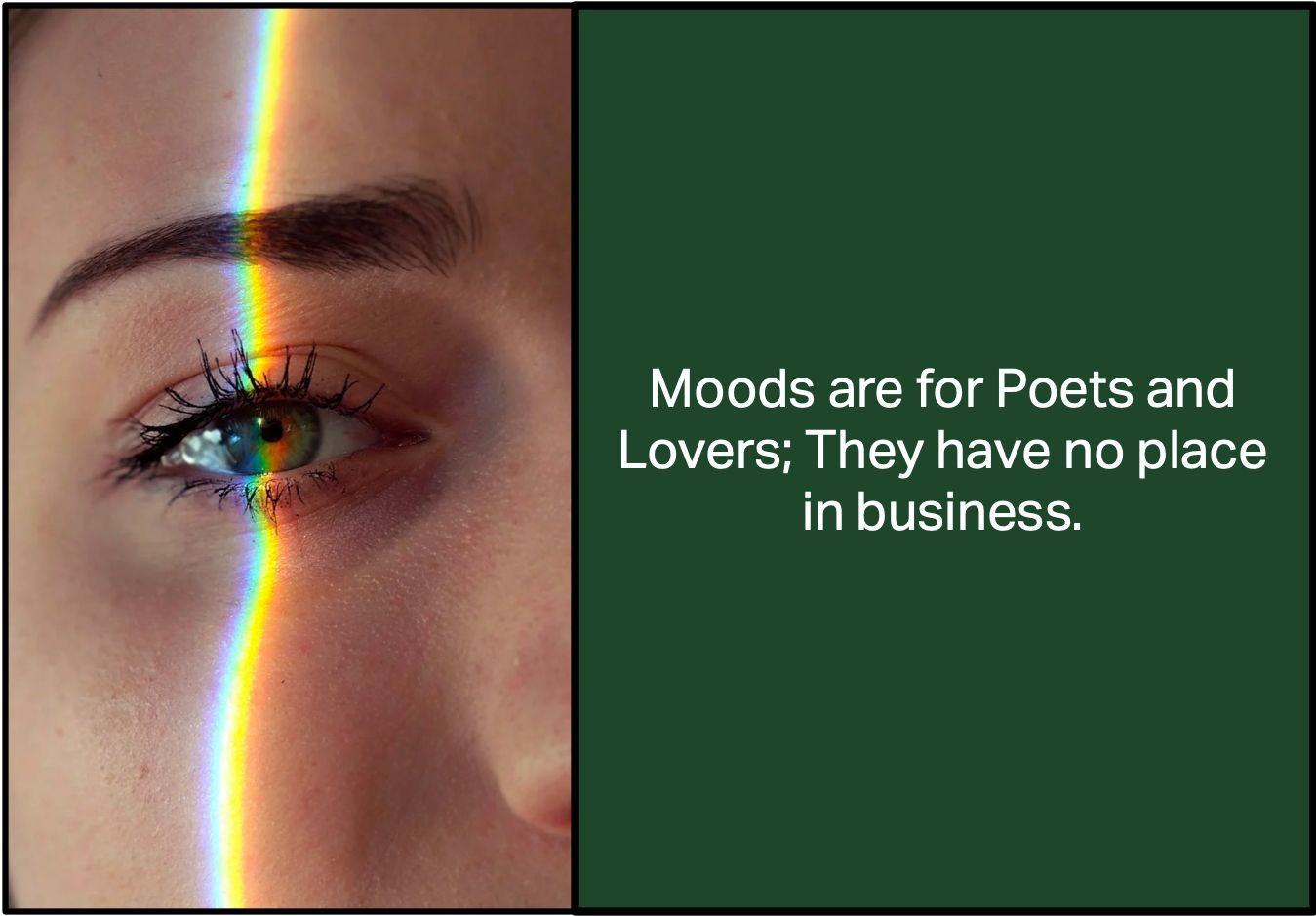Moods are a natural part of being human. They're part of our emotional intelligence and can be used positively in all aspects of life. We all have them, but they're often seen as unprofessional or inappropriate because they're points where you don't seem in control. Moods are similar but different than emotions. Your emotions are at a point in time and, for some people, define who they are most of the time. In business, it is better to keep moods in check and moderation.
Your mood is the outcome of one or more recent events; you can't control the events, and sometimes they're just there--like when you ran out of everything you had planned to do for that home project, or you have an unresolved argument with a friend. Other times, though, we create our moods--the result of how we think about things happening around us (or even inside us). These are part of being human. How you manage them, particularly in business, defines you. You may think no one notices, or perhaps only those in your inner circle. However, the perception of people with strong moods is like the news. It spreads, and it is unlikely you will control it. It is a two-edged sword; people often think of only the negative aspects. If you are known for being calm under pressure, that reputation… is known far and wide.
Your emotional intelligence (EI) is the ability to understand and manage your emotions and those of others. It's an essential skill for leaders because it helps you build empathy with those around you; they will be more likely to trust and respect you if they can talk openly about their feelings. In addition, EI enables you to navigate moods.
You probably know what happens around you when you are… in a mood, but let’s spell out a few for people newer to working in a team environment.
- Grumpy. You make abrupt and snap decisions. If you are in a bad mood, it's much easier to make decisions that run over the feelings of others. Your tolerance for… things may be lowered, but it doesn’t mean everyone else’s is.
- You are alienating others. When you're feeling down, and the problem stems from relationships of any kind, it's easy for your attitude toward others to become negative as well, which can lead to conflict.
- Giddiness. Your super-happy, mega-cheerful, over-top-joy may wear thin after a few hours. You may have rescued the child of the dreamland AND conquered the beast of the shadow. Only some people want to hear unending tales of it.
Do your shadow work. Psychologist Carl Jung defined 12 archetypes for which there is much scholarly research. However, self-definition is not a substitute for working with a trained clinician.
Recognizing your emotions' trigger is a significant first step toward managing them. For example, if you feel frustrated when continually asked about a personal loss and the 12th person asks you a question today, this can trigger frustration and annoyance. However, if you're self-aware, the next time someone asks--and they will--you'll be better in control and manage your response(s).
Put yourself on a timeout the next time you're feeling in a mood. Consider your current state of mind's impact on others and how it will reflect on you over time.

